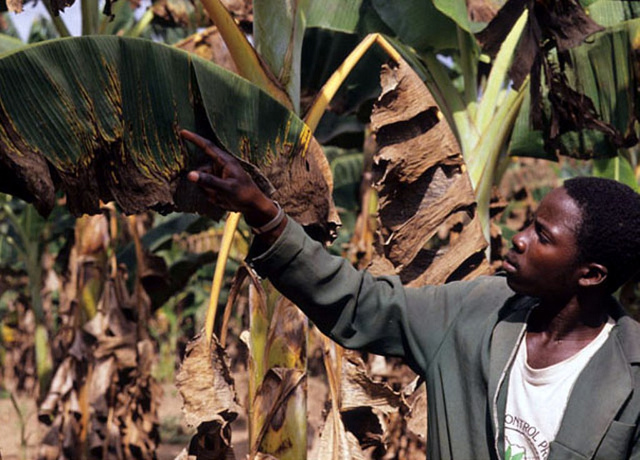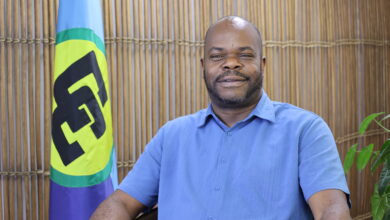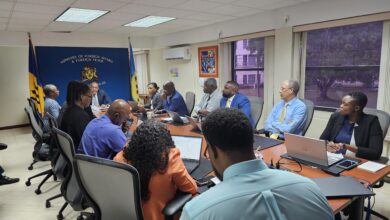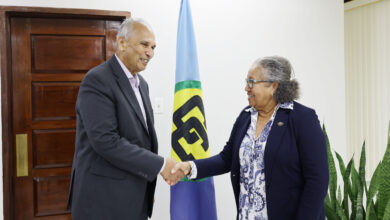The Caribbean Agricultural Research and Development Institute (CARDI) in collaboration with the Caribbean Development Bank (CDB) will be hosting a workshop on the ‘Integrated Disease Management of black Sigatoka disease (BSD)’ from 28 September – 9 October, 2015, in Guyana. The workshop will take place at the National Agricultural Research and Extension Institute (NAREI), Agriculture Road, Mon Repos, and will be facilitated by plant pathologist Dr. Robert Power.
The training workshop seeks to strengthen the capacity of BSD management teams in the Ministry of Agriculture and banana and plantain organisations, extension officers and farmers in Guyana. Dr. Power will utilise a combination of classroom, laboratory and field sessions to deliver a dynamic programme to participants. It will focus on phyto-pathological cycle of the disease, epidemiology, integrated disease management, climatic forecasting methods and measuring disease intensity with a view towards developing and sustaining robust detection, monitoring and management strategies for Guyana.
Dr. Power has extensive experience in managing BSD in commercial banana production exporting to Europe. He has a wealth of experience and understanding of the industry having worked directly in the banana industry in Suriname, as a plant pathologist for BSD management, a researcher in improving and predicting banana crop yield, as a manager of a 2,300 ha banana plantation and Team Leader in the ‘Modernization of the banana industry in Suriname’. He is now an advisor to the Surinamese President on Agricultural related issues. Dr. Power has also lectured in crop protection and plant pathology at the University of Suriname, Wageningen Agricultural University and the International Agricultural Centre.
BSD is a fungal borne disease which is a main constraint to banana and plantain production. Approximately, 97% of all banana and plantain varieties grown in the Caribbean are susceptible to BSD. It was first detected in the Region in 1991 and by 2012 it was recorded in all the banana and plantain producing countries in the Caribbean, where it has been responsible for a drastic decline in production. BSD reduces the leaf surface area of the plants which in turn affects their photosynthetic ability, consequently leading to a reduction in the size and weight of the fruit and bunches by as much as 35-50%, early and uneven ripening of the fruits and poor ratooning of the stools.
This capacity-building workshop is one of three actions taking place under the CARDI/CDB funded project ‘Development of an Integrated Disease Management Programme for Black Sigatoka Disease’ in Guyana, Dominica, St. Vincent and the Grenadines and Saint Lucia. The other two are the development of an integrated disease management (IDM) plan for BSD and the introduction and evaluation of BSD tolerant varieties. It is envisioned that these three actions will work together synergistically to significantly improve disease management, resulting in higher yields for farmers. Bananas are an important commodity for the Region’s small farmers as it is a source of employment, income and food security. Banana and plantain exports also account for approximately one third of the export earnings from the Windward Islands. (CARDI/CDB Press Release)






